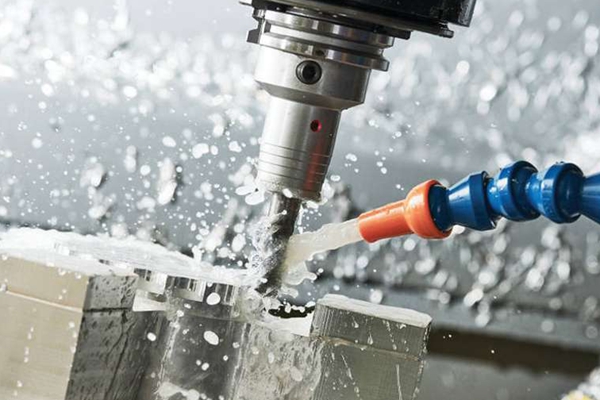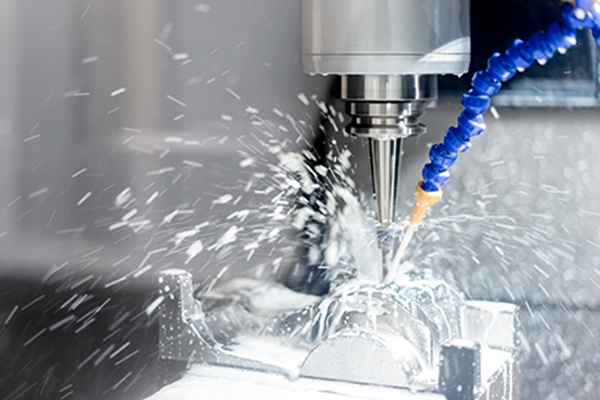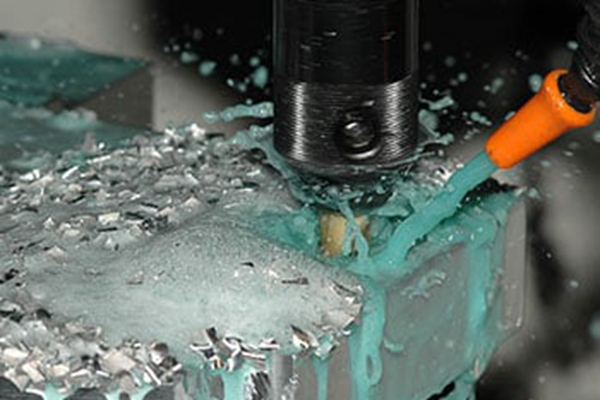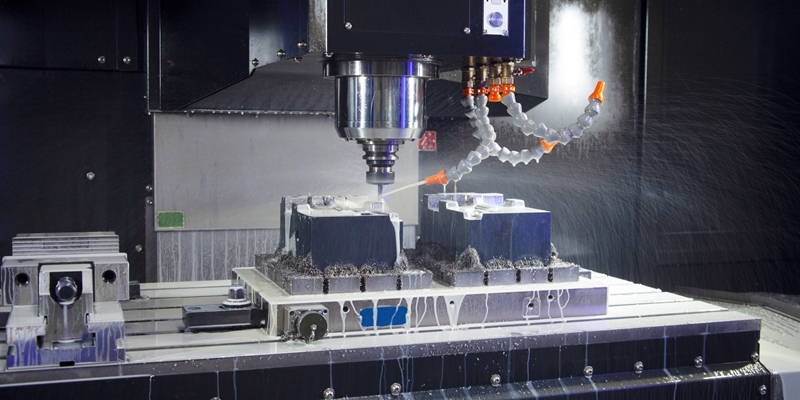- May 17, 2021
In CNC machining processes, cooling is essential. Coolants serve several purposes that ensure the machines run efficiently and accurately. Having the correct type of CNC coolant during milling, grinding, or turning prevents overheating and extends tool life.
Milling technology is one of the most commonly used CNC processes in the industry. It’s perfectly suited to produce custom design parts on a range of materials. However, companies that specialize in machining CNC aluminum parts have to use coolants to limit and control overheating on milling tools.
What’s the importance of a CNC coolant, and which ones should you pick? Let’s discuss that.
The Role of CNC Coolants
High temperatures are very detrimental to the workpiece, chips, tools, and even machinists during cutting. The heat energy could permanently damage the milling tools or physically hurt the technicians. Here’s why a CNC coolant is essential in the machining process.
· For Lubrication
Coolants and lubricants are sometimes used interchangeably. However, they are not the same. The cooling fluid is used in the milling process to reduce friction between the tool and the removal of the chips.
Aluminum as a material can be very sticky and will tend to the cutter. The coolant will make things slippery for chips to cling.
· For Cooling
Heat build-up is dangerous both for the tools and machine operators. A CNC coolant comes in handy to reduce the temperatures both on the workpiece and cutting tool. Heavy cutting operations take a long time and generate heat more rapidly.
· To Clear the Chips
As you mill aluminum, there’s a lot of material removal from the workpiece. Because of this, there are chips in the work area. A liquid coolant moves these chips away from the cutter to ensure the surface finished gets done well.
· To Reduce Corrosion
CNC coolants are essential in protecting the tools and manufactured parts from corrosion. By providing the necessary lubrication, the machining process is seamless with minimal surface damage.

How Many Types of Coolant Delivery?
Now that you have the coolant, you can apply it in different ways. Using the wrong pressure could damage your tools.
1. Compressed Air
Air coolants will clear the chips and provide cooling on the CNC milling tools. As one of the most cost-effective methods of cooling, it’s preferred for sensitive materials. However, the downside to this method is that it doesn’t have a lubricating effect, making it unsuitable for friction-intense processes.
2. Flood Cooling
During CNC aluminum projects, heat can be mitigated using this method. It involves spraying coolant between the tool and milled aluminum. As a low-pressure method, it’s also well suited for lubrication and to clear the chips away from the milling tool.
Using this liquid CNC coolant means you have to spend a lot of time after the milling process to clean up the fluid around the machines.
3. Minimum Quantity Lubrication (MQL)
Unlike the flooding method, which involves using large quantities of CNC coolant, this process is focused on efficiency. With the MQL technique, machine operators and technicians use the least amount of coolant on the machines. The amount used is based on the specific needs of the milling session.
Applied as an aerosol or fine mist, this coolant reduces the costs and environmental damage by precisely calculating the required amount. However, having errors could have a significant impact on the machine operations.
4. Solid Application
To prevent water and soil contamination, machine operators can use solid lubrication such as industrial ointments. However, as you save on costs and protect the environment, you might need to use more effort in regular applications. Besides, it’s not an effective technique for clearing chips away from the tool.

Types of Coolants to Use when Milling Aluminum
Choosing a CNC coolant is entirely based on the performance of the product and materials used. Some types of coolants work better than others and also have different uses. You should select a coolant depending on whether you need it only for cooling, as a lubricant, to clear chips, or all the functions.
There are different types of coolants, including liquids, gels, and aerosols. The liquid coolants are the most common and come as either soluble oils, straight oils, synthetic and semi-synthetic fluids.
During CNC aluminum projects, you’ll need a coolant that’s high in oil content, such as a straight oil. This is the best option because aluminum tends to be very sticky; therefore, you’ll need lots of lubrication to keep the chips away from the milling tool.
Straight oils have a base mineral or petroleum oil composition that works in their undiluted form. Lubricants such as vegetable oils, esters, and fats, are essential during CNC milling processes.
What to Consider When Using CNC Coolants
During the application of a CNC coolant, the concentration levels need to be considered carefully. A deficit or surplus can affect the machines and increase manufacture and repair costs.
· Low Coolant Concentration
If the quantities are low, the manufacturer will incur costs due to the excess heat and friction. In addition, the milling tools will have reduced life and lead to the workpiece and machine corrosion. Furthermore, the tool might get bacterial growth, reducing their performance levels.
· High Coolant Concentration
On the other hand, if the technicians apply too much CNC coolant during milling, there will be lots of wasted concentrates. The excesses will form a residue on the machining tools that shorten the working life.
Also, this high amount of coolants could stain the workpiece and tools. For the operators, they could get skin irritation from the chemicals.






